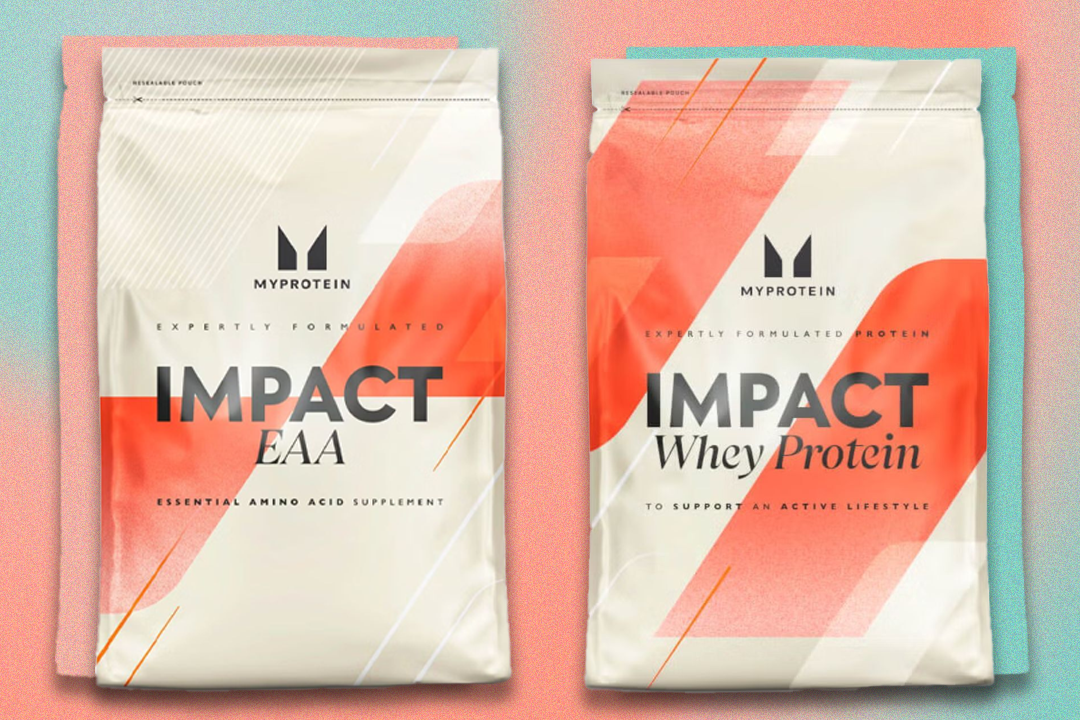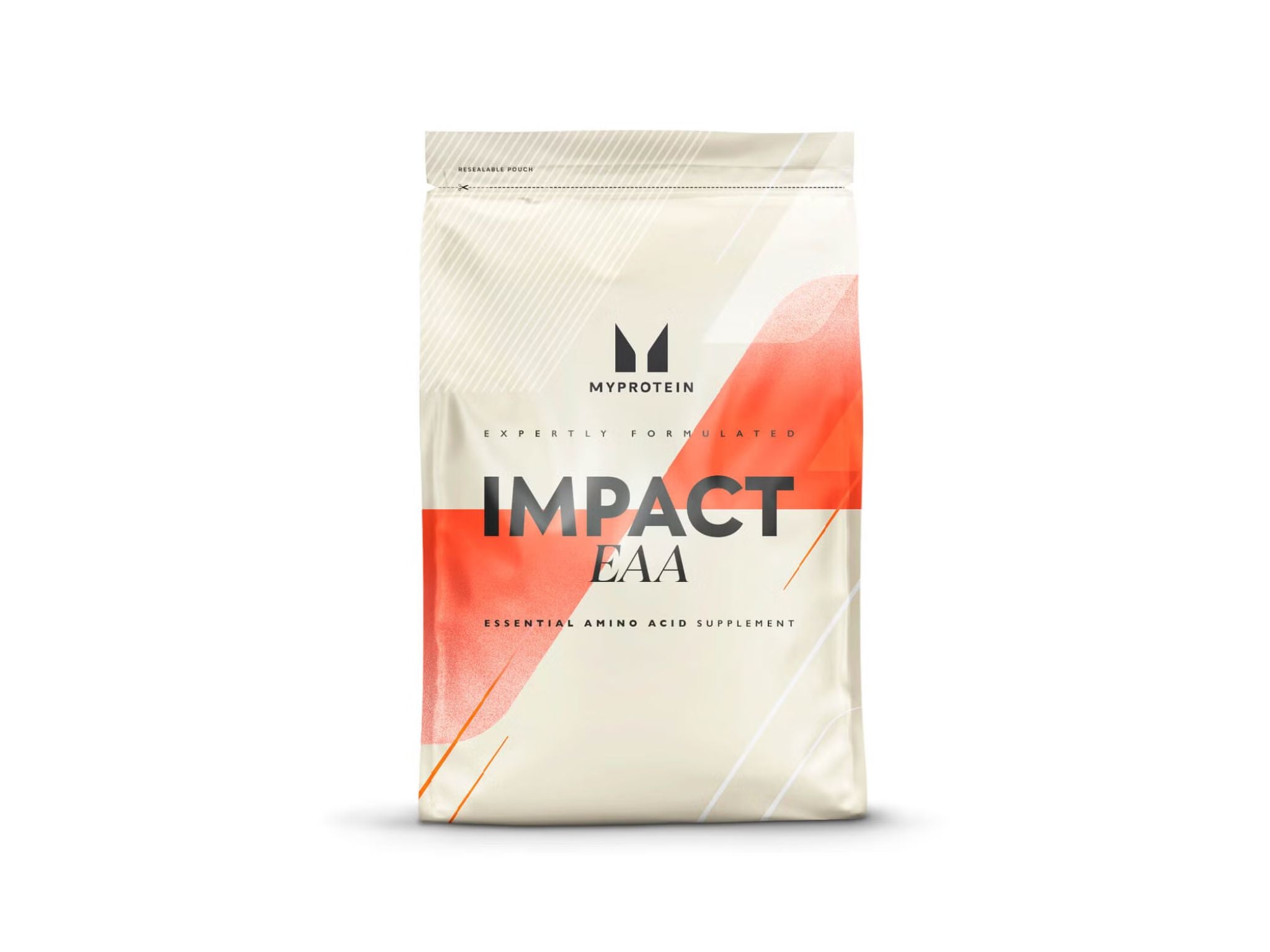Whey protein vs amino acids: Which supplement should you take?
Which supplements should you use to support your efforts in the gym? Our fitness writer investigates

Your support helps us to tell the story
From reproductive rights to climate change to Big Tech, The Independent is on the ground when the story is developing. Whether it's investigating the financials of Elon Musk's pro-Trump PAC or producing our latest documentary, 'The A Word', which shines a light on the American women fighting for reproductive rights, we know how important it is to parse out the facts from the messaging.
At such a critical moment in US history, we need reporters on the ground. Your donation allows us to keep sending journalists to speak to both sides of the story.
The Independent is trusted by Americans across the entire political spectrum. And unlike many other quality news outlets, we choose not to lock Americans out of our reporting and analysis with paywalls. We believe quality journalism should be available to everyone, paid for by those who can afford it.
Your support makes all the difference.Building muscle is no mean feat. The principles behind it are simple enough – progressive strength training, plenty of protein, adequate calorie consumption and enough recovery – but consistently marrying these factors can be a tricky task.
It’s no wonder people are always on the lookout for a helping hand, with supplements proving a popular option. If your mission in the gym is to build muscle, whey protein powder and amino acids are probably already on your radar, but which one will actually bring you closer to your goals?
Amino acids are the building blocks of protein, which is a macronutrient that supports muscle growth and development. In this way, the two supplements are linked, but beyond this there are some stark differences between them.
Whey protein is a supplement A-lister, and one of the most practical ways to top up your daily protein intake. It typically comes as a powder which, when combined with water or milk, creates a tasty drink containing 20g or more of protein.
Amino acid supplements come in two main forms; essential amino acids (EAAs) and branched-chain amino acids (BCAAs). All 20 types of amino acids are needed to build muscle, with the body producing 11 by itself and needing to consume a further nine – the ones in this latter camp are called essential amino acids. EAA supplements provide all nine of these, while BCAAs serve up the three which have a branched-chain chemical structure.
What is the difference between whey protein and amino acids?
Both whey protein powder and amino acids are billed as supplements which can help you build muscle. They both come in powder form too (although you can also find whey protein into other products such as protein bars and smoothies).
The main difference between them is how they go about helping you build muscle. Whey protein is designed to increase your overall daily protein intake, while both BCAAs and EAAs are intended to top up your levels of specific amino acids, as all 20 amino acids are required for muscle protein synthesis (also known as muscle growth). It should also be noted that, as a complete protein source, whey protein already contains all nine essential amino acids.
To fill these roles, very different serving sizes are required. A scoop of whey protein tends to be about 30g, while a serving of EAAs or BCAAs rarely exceeds 7g.
Another difference is that whey protein is available in a huge range of flavours, including both creamy shakes and light clear whey options that are similar to squash. On the other hand, EAAs and BCAAs tend to have a much smaller selection of fruity flavours on offer, as well as unflavoured versions.
Benefits of whey protein
Whey is a liquid byproduct of the cheese-making process. This can be processed into the supplement we know as whey protein powder, providing a complete protein source (one that contains all nine essential amino acids). Waste not, want not, right?
The biggest benefit of whey protein is that it increases your daily protein intake, providing the nutrients your body needs to support muscle maintenance and growth. Of course, it’s possible to hit your protein targets through wholefoods alone, and that’s certainly where the majority of your nutrition should come from. But with the National Academy of Sports Medicine recommending 1.6g and 2.2g of protein per kilogram of body weight per day for muscle-gaining goals, whey protein can provide a welcome helping hand in hitting this figure.
Whey protein is easy to use and a comparatively cheap protein source too. You only have to mix it with water or milk to produce a protein-rich drink in a matter of seconds – far faster than cooking up a load of tofu or chicken breast. And with a 1kg (33-serving) bag retailing for £41.99 at Myprotein (£41.99, Myprotein.com), each shake costs a little over £1.20 – less if you can pick up a pouch in one of the brand’s frequent sales.
Protein is also the most satiating macronutrient (above fats and carbohydrates), plays a part in maintaining bone mass and helps your body repair itself after injury, rounding out its impressive CV.
Benefits of amino acids
BCAAs have listed benefits of helping you repair and build muscle, with the three amino acids present (leucine, isoleucine and valine) identified as key drivers in the hypertrophy process. However, in recent years the supplement’s effectiveness and necessity has been called into question.
A 2017 study found that supplementing a fairly protein-rich diet with BCAAs for eight days “decreased perceptions of soreness in resistance-trained individuals”, although it added that the impact of BCAAs on muscle recovery under these conditions appeared to be “negligible”.
EAAs go one step further than BCAAs, providing all nine essential amino acids (histidine, isoleucine, leucine, lysine, methionine, phenylalanine, threonine, tryptophan and valine). This provides your body with the building blocks it needs to grow muscle.
However, essential amino acids can also be obtained through wholefoods, with complete protein sources including meat, fish, eggs, dairy, quinoa, spirulina and soy products like tofu. So, like whey before it, this supplement is surplus to requirement if you are consuming a diet that contains enough of these essential amino acids.
Should I take whey protein or amino acids?
No supplement is a must. If you’re able to consume enough protein and adequate quantities of all nine essential amino acids through your diet, you don’t need any of these products. However, if you’re looking for an easy way to increase your daily protein intake and consume essential aminos, whey protein should be your first port of call.
It’s a cheap and practical source of protein that can help you reach sufficient levels of this macronutrient to support muscle maintenance and growth (among the many other health benefits of a protein-rich diet, such as strengthening your bones, aiding recovery from injury and keeping you feeling full for longer).
Whey is also a complete protein source, meaning it contains all nine essential amino acids – Myprotein’s impact whey protein contains the same essential amino acid profile as its EAA supplement (£31.49, Myprotein.com), although it says the latter has a “faster amino acid absorption rate”.
If you don’t like whey protein powder but still want to make sure you’re getting all essential amino acids on a daily basis, EAAs represent a more comprehensive supplement than BCAAs as they contain all nine of these nutrients.
The whey protein supplement to buy
Impact whey protein powder 1kg: Was £41.99, now £19.99, Myprotein.com
Myprotein’s impact whey protein powder is an ever-present in gym-goers’ cupboards across the country. Why? Because it’s tasty, comes in a wide range of flavours, mixes well and delivers the nutrition you want from a protein shake (111 calories, 21g of protein, 2.1g of carbs and 2g of fat per serving). Thanks to Myprotein’s consistent deals, you can usually scoop up a pouch for a fraction of its usual price too, making this a shrewd purchase for anyone looking to support their efforts in the gym by upping their daily protein intake.
The amino acid supplement to buy
Impact EAA 500g: Was £54.49, now £26.52, Myprotein.com
If you’re looking to source all nine essential amino acids, but don’t get on with protein powder, Myprotein’s impact EAAs will see you right. You can buy 500g pouches in 10 refreshing flavours, from raspberry lemonade to cola, making them a strong intra- or post-workout option.

Read more: What are amino acid supplements and why do they matter for fitness?

Join our commenting forum
Join thought-provoking conversations, follow other Independent readers and see their replies
Comments